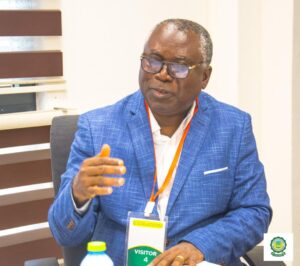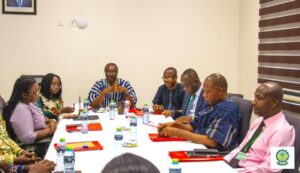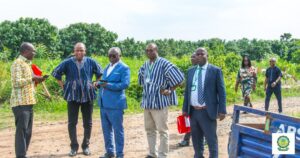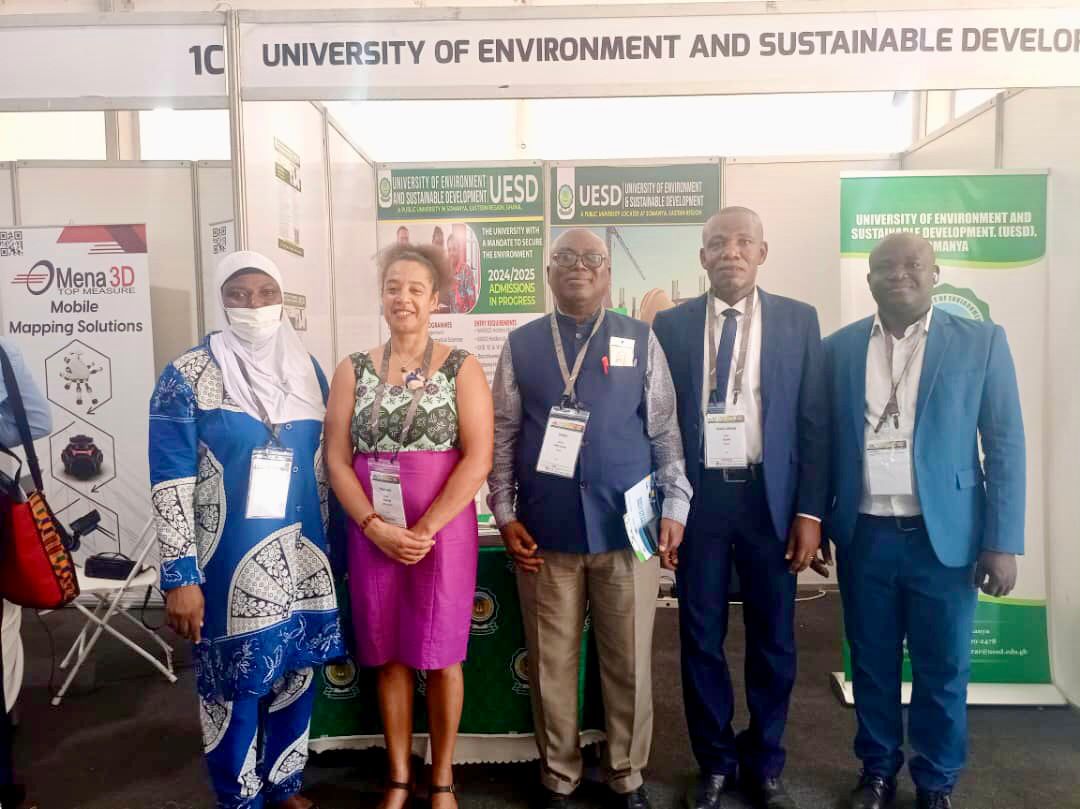The University of Environment and Sustainable Development (UESD) participated in the 2024 FIG week-long conference held in Accra from May 19–24, 2024. The conference, on the theme Your World, Our World: Resilient Environment and Sustainable Resource Management for All, was officially opened by President Akuffo Addo.
The conference which hosted surveyors from across the world, was organised by the International Federation of Surveyors (FIG), the Licensed Surveyors Association of Ghana (LiSAG), including Sur. Dr. Isaac Abbam of UESD and the Ghana Institution of Surveyors (GhIS).

Some faculty members from UESD also attended. A Lecturer at the Department of Geography and Earth Science, Dr. Fatimaa Eshun, presented a paper on behalf of her team, on the topic: “Geospatial Techniques in Mitigating the Effects of Climate Change to Create a Sustainable Environment in Yilo Krobo.”
UESD mounted a stand to exhibit its programmes. So far, twenty-two(22) programmes have been approved by the Ghana Tertiary Education Commission, (GTEC). The latest are; BSc. Urban Planning and Development, BSc. Sustainable Construction Management and Technology and BSc. Geography and Earth Science.
LISAG members visit UESD
A few days before the conference, the President of the Licensed Surveyors Association of Ghana, (LiSAG) Surv. Ing. Samuel Larbi Darko and some members visited UESD at Somanya in the Eastern. They were received by the Vice-Chancellor, Prof. Eric Nyarko-Sampson, the Registrar Mrs. Mary Abena Agyepong, the Pro-Vice-Chancellor, Prof. Edward Wiafe Debrah, and other management members and had a meeting in the Council Chamber.

The LiSAG team was briefed by Prof. Nyarko-Sampson about the accomplishments and current projects of the University. He said, presently, UESD is operating two out of its five Schools; the School of Sustainable Development (SSD) and the School of Natural and Environmental Sciences (SNES). He disclosed that, the 3rd School, the School of Built Environment, which aligns with LiSAG’s activities has begun operations as the Department of Built Environment under SSD.
He also revealed that the University has acquired 640 acres of land at Donkorkrom for its School of Agriculture, Agribusiness, and Entrepreneurship Development.
Prof. Nyarko-Sampson discussed the design and planning of the University, pointing out that 210 boundary posts have been built by the Directorate of Physical Development and Estate Management to secure the campus’s borders. He also noted the importance of conducting a final survey to mark the boundaries, a task for which the Vice President of LISAG, Surveyor Djaba, has pledged assistance.
In response, the Vice-President of LISAG, Surv. Ing. Larbi Darko conveyed enthusiasm for their visit, noting it was the association’s first visit to the University. He conveyed the association’s interest in signing a Memorandum of Understanding (MOU) with UESD.
Following the meeting, the team was led on a tour of the UESD campus, visiting the point where the Greenwich Meridian line crosses campus.

Seminar
After the tour, a member of the team, Surv Simon Ironside of the University of Otago in New Zealand, delivered a seminar in the video conferencing room on the topic: “Accurate Mapping and Classification of Plastic Waste in Ghana.” and addressed by
He justified the need for the creation of a system that can accurately aid in the identification of plastic waste accumulation points. This robust system once designed he said, will significantly reduce the struggle with the identification of plastic waste-prone areas and boost efforts in the fight against the plastic waste menace.
Surveyor Ironside indicated that even though there is a ban on the production and importation of plastic waste, which appears to be the best way to nip the menace in the bud, there is also a need to consider the economic dimension of the situation.
This may also lead to heightened unemployment, as many workers in that sector could end up jobless. He, therefore, proposed a fine synergy between all stakeholders, including consumers of plastic products, to identify the most preferable alternative for resolving the problem.
The Chairman was Dr. Shine Francis Gbedemah, the Acting Dean of the School of Natural and Environmental Sciences (SNES). He underscored the crucial role played by consumers of plastic products, emphasizing that their final actions significantly determine the extent of waste to be generated and managed.

